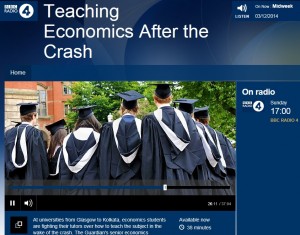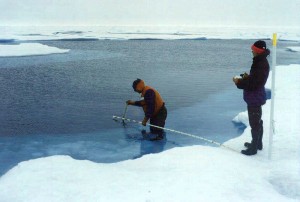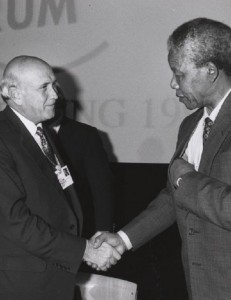If you were to ask which group of academics had the most direct influence over the state and destiny of our society, a good bet would be those of economics. They mould the thinking of the economics graduates of tomorrow, who go on to advise, possibly even run, banks, businesses, governments and international institutions. Yet this same group of academics is by all accounts the most dogmatic of them all, with academic power and influence across the globe staying exclusively with one group of thought (the neo-classical), who monopolise the most prestigious economics journals, the appointments for academic posts, and the shape of economics syllabuses in universities. The ideas of these people have massive power over the world, and yet the inadequacy of their ideas becomes immediately obvious to anyone who looks out beyond the narrow assumptions of their mathematical models. This is a disastrous example of the power of the self-justifying left hemisphere in action.
I have become increasingly aware of this recently when writing about economics as (a small) part of my new book, when I discovered that there is a growing protest movement amongst economics students protesting against the narrowness of the teaching they receive. My perception of the disastrous impact of academic economics has been reinforced by listening to an excellent radio programme from BBC Radio 4, in which Aditya Chakrabortty provides widespread evidence both of the narrowness and its consequences. I highly recommend this programme, which is linked here (on BBC iplayer, which means it will only be available for 30 days and only within the UK). It’s 38 minutes long but well worth that expenditure of time. The people interviewed by Chakrabortty admitting the huge inadequacies of academic economics include a big cheese from the Bank of England, billionaire George Soros (who said he made his fortune by ignoring his economics training) and some eminent (but still marginalised) economists such as Robert Skidelsky and Ha-Joon Chang, as well as a great many frustrated students from around the globe.
The situation in economics sounds very similar to the one I encountered as a postgraduate student in philosophy: the ascendency of a narrow view of the subject is maintained by a positive feedback loop. Only the people with the mainstream assumptions get published in the most prestigious journals. Only the people who publish in those journals stand any chance in the massive competition for academic jobs. Once they get there, those people have sunk costs and vested interests that make them very slow to change anything, and their ability to support the beliefs of the powerful ensures that they are never seriously challenged. They just mould the next generation and the cycle continues.
In evolutionary terms, this would involve selection for narrow-mindedness and fragility, where people who flourish in certain very restricted conditions but take no account of wider uncertainties continue to rule – until they bring the whole of their society down with them. The only difference between philosophy and economics in this respect is that the effects of philosophy on society are much slower and more long-term than those of economics, whereas people can see the defects of narrow economic thinking clearly and amply demonstrated in the crash of 2008.
In the chapter on economics in my forthcoming book, I identify five common and influential dogmas in economics – all dogmas that can be related to wider ones beyond economics. These are:
- Rational choice theory, which assumes that a unified self will make consistent consumption choices
- Perfect information, which assumes that people know what is happening in the markets they are participating in
- Cosmic justice in a free market: i.e. Adam Smith’s ‘Invisible Hand’, which ensures that the narrow choices of individuals will be transformed by the power of the market into general good by helping to create wealth
- The growth model, which assumes infinite resources can be used for unending growth (or that growth can somehow be decoupled from a lack of new resources)
- Profit maximisation, which assumes that the best strategy for a company is always to maximise profit, whilst other motives (e.g. those of fair trade) simply distort the functioning of the market
It is not as though these assumptions have no challenges in the wider world. Psychologist Daniel Kahneman won a Nobel Prize for demolishing rational choice theory. The Invisible Hand has long been questioned by left-wingers, whilst the growth model has long been questioned by Greens, and is cogently deconstructed by green economist Tim Jackson. The movement for corporate social and environmental responsibility, including the fairtrade movement, also offers a challenge to profit maximisation. Above all, Nassim Nicholas Taleb provides a strong challenge to the over-certainties of economics (see my review of his book Antifragile). There are also plenty of alternative models being developed (such as Tim Jackson’s account of prosperity without growth), so the criticism is not merely destructive. But all this criticism from the voices of experience seems to make little or no impression on the self-sufficient, self-reinforcing dogmatic bubble of the core academic discipline.
Of the five dogmas above, the one that concerns me most is the fourth. The growth model appears to be analogous to a car that is constantly accelerating because it is being chased by a police car of debt, speeding along behind it. But it is only a matter of time before the car crashes, runs out of petrol, or runs out of road, at which point the debt police car will also catch up with it. In this respect it just provides a particularly urgent and striking model of the dangers of metaphysical dogma. All dogmas, in some ways, speed up to try to preserve themselves, pursued by police cars of wider conditions, and then they crash. But it seems, at present, as though the economists will do for us long before the other dogmatists get close to doing so.


